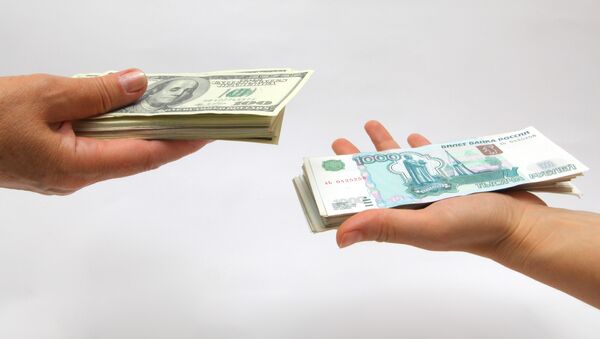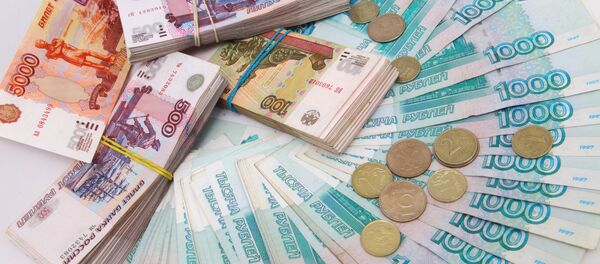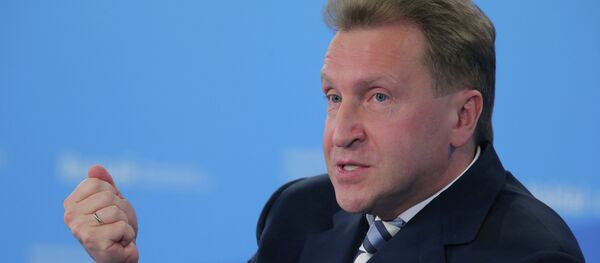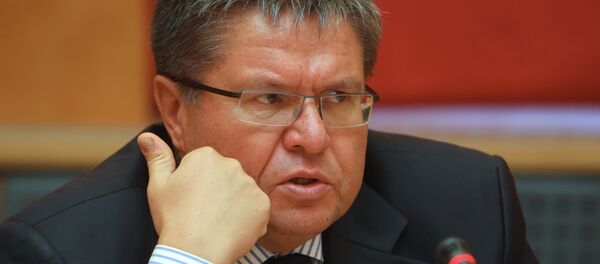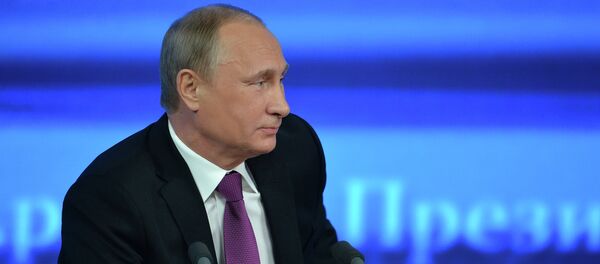In mid-December, there was a sharp fall of the national currency from about 50 to 70 rubles per dollar, and during the peak up to 80. Over the previous few months, oil prices (Russia's main export commodity) have gradually fell by almost half, followed by the ruble. Another factor was a high demand for the foreign currency to pay off external debts with access to the international currency market, closed by Western sanctions for a number of large Russian companies. However, within the next two weeks, the ruble has significantly recovered the loss, gaining the position of 54 per dollar.
"January is a very comfortable month for us, and we have prepared for future," — he added.
Ulyukayev said that during the ruble critical fall ("black" Monday and Tuesday, 15 and 16 December), the financial and economic regulators "have learned how to proceed on the one hand: how to ensure the supply of foreign currency, on the other — how to reduce additional demand for it". "This is a cooperative action of exporters, the Central Bank, the Ministry of Finance and all who have foreign currency assets. If you act in concert, there is nothing complicated, "- said the minister.
Mass purchase of foreign currency was mostly reasoned by the expectations formed by regulators
Russian Minister of Economic Development Alexei Ulyukayev said that the majority of participants of the exchange market were buying foreign currency in mid-December mostly due to the fact that regulators were downplaying the market, forming stable expectations for devalorization of the ruble.
In mid-December, after a sharp fall of the national currency, they began to blame "speculators." President Vladimir Putin has said during his big press conference that speculation in the currency market is not a criminal law concept and is consistent with the market economy practices, adding that both foreign and Russian companies can speculate on the market.
"Speculator is a category of market economy. It does not refer to the Criminal Code, but to the usual market practice. All those, who open foreign exchange position with the expectation of a certain rate fluctuations, are speculators. Some of them speculate on bull market, others — on bear market "- the Minister recalled.
"It is harmful when everybody enters into the same transactions. "This is mostly due to the fact that we have formed stable market players' expectations, in this case, the fall of the ruble, "- said Ulyukayev.
"Different entities were among " speculators ", including our state-owned exporters that kept export earnings and had been receiving credits in rubles, in order to fulfill ruble obligations "- he continued.
The Cenral Bank key rate should be returned to the level of the beginning of December
After December 15, when the exchange rate experienced the most severe decline since the market crash of 1998, the Bank of Russia raised its key interest rate from 10.5% to 17%, explaining this measure by the significantly increased devaluation and inflation risks. Earlier this month (12 December), the key annual rate was 9.5%. Earlier Ulyukayev has said that it was necessary to lower the key rate in the first quarter of 2015.
"Almost for all borrowers other than exporters, the situation becomes prohibitive. Therefore, we need to return to the previous rate as soon as possible. The aim of the increase was to overcome the currency shock. We managed to do that. If we see that the stabilization is consistent, I think that you can return the rate to the level of the beginning of December, "- Ulyukayev said.
The Russian national currency, dropped to a record low of 80 against the dollar and 100 against the euro last Tuesday, prompting the Central Bank to take urgent measures to stem its depreciation. On Monday morning (08:54 GMT) the ruble was trading at 57 to the dollar and less than 70 to the euro.
In his year-end press conference last Thursday Russian President Vladimir Putin said the ruble had been weighed down by a number of "external factors," including a drop in oil prices and, to a lesser degree, by a slide in gas prices. He said the Russian economy may rebound from the current downturn as early as in the first quarter of 2015.
